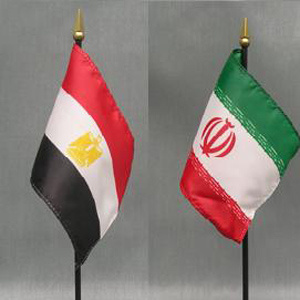Iran and Egypt: Any Chance for Resumption of Ties?

But is Cairo’s expressed concern about Iran’s increasing power in the Persian Gulf region a true worry? It’s hard to give an affirmative response. Husni Mubarak is desperately trying to prove that his country is still the leader of the Arab World, the ‘Big Brother’ that cares for his younger Arab brethren. But those days are past for Cairo, and if there a tad of clout left for Egypt, it works in Palestinian and North African affairs.
Since the early 1990s, Iran and Egypt have occasionally sent positive signals for restoration of ties, all of which have been rendered fruitless by pressure groups on the domestic political stage of both countries. Nonetheless, the problem seems to be more serious on the Egyptian side. Husni Mubarak is the basic problem: a weak-willed president who lacks the courage to break from Anwar Sadat’s legacy and resume ties with Iran.
Iran, on the other hand, has not kept entirely reserved in its desire to restart bilateral relations. Khatami’s era witnessed the first-in-years visit by the Iranian foreign minister to Cairo. During the final months of his presidency, Khatami met Mubarak at the Davos Forum, but Egyptians’ indecision ruined the chances for a reconciliation.
President Ahmadinejad followed Khatami’s line and with his own way with words, once announced that in the event Egypt agreed, he was ready to re-open the Iranian embassy in Cairo by the end of the day. No response was heard from the other side, though.
But this is not the whole story. Another factor that gives the Egyptians pause in resuming ties with Iran is their political game with the West. Cairo wants to use the Iran card to continue receiving its 3-billion dollar annual share of US military and economic aid, and to extract more concessions from Tel Aviv. Proximity to Iran can be a lever used by Mubarak to pressure the Americans to pour ever more money into the pockets of the rulers of the land of Pharaohs. As long as Husni Mubarak is in power, the prospect of renewed Iran-Egypt ties remains gloomy.
So will the next president of Egypt be Gamal Mubarak, Omar Soleyman, or former IAEA chief Muhammad ElBaradei? It is not yet clear who is going to succeed the octogenarian Husni Mobarak. ElBaradei’s chances are weak, unless foreign powers support a relatively democratic election in Egypt. As long as this condition is not met, Omar Soleyman is the most likely choice for the position. With Egyptian intelligence forces being the back-seat driver of this Arab country, the possibility of outsider ElBaradei coming to power –which will inevitably deprive the Egyptian oligarchy from their privilege -is highly unlikely, unless Washington uncharacteristically decides to support democracy in a friendly Arab state.
Mohammad Hossein Hafezian is a fellow researcher in the Center for Middle East Studies.

